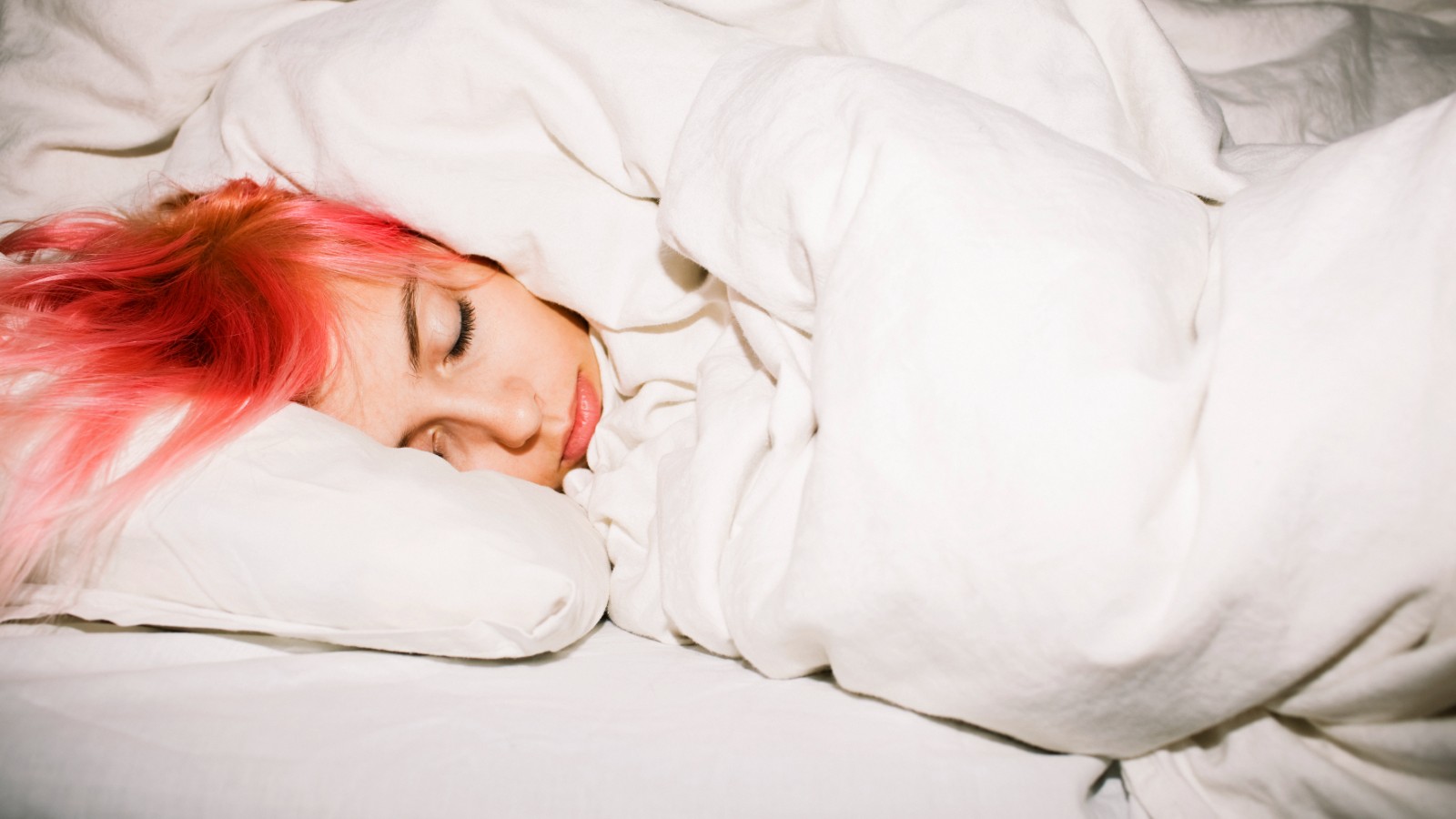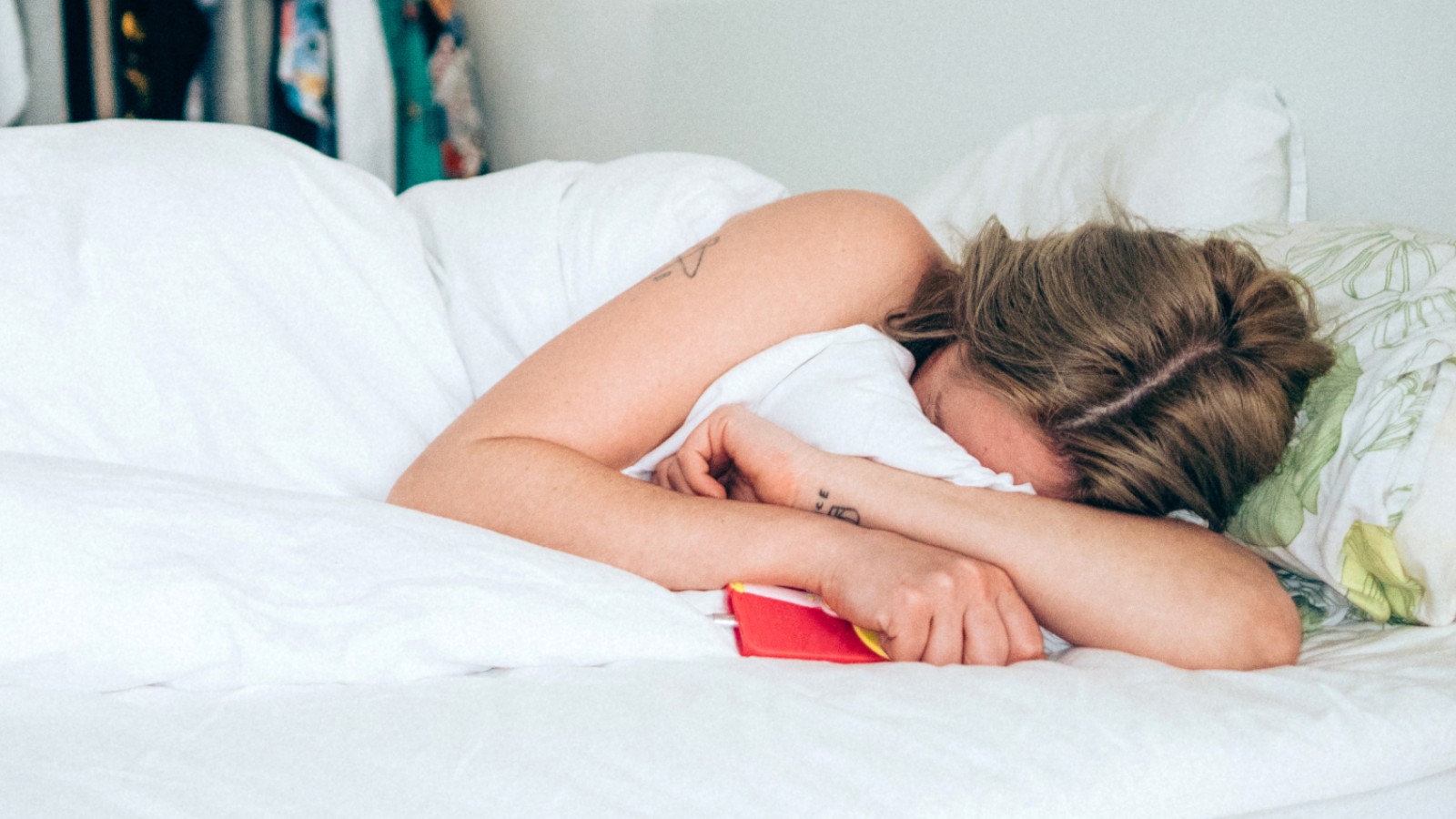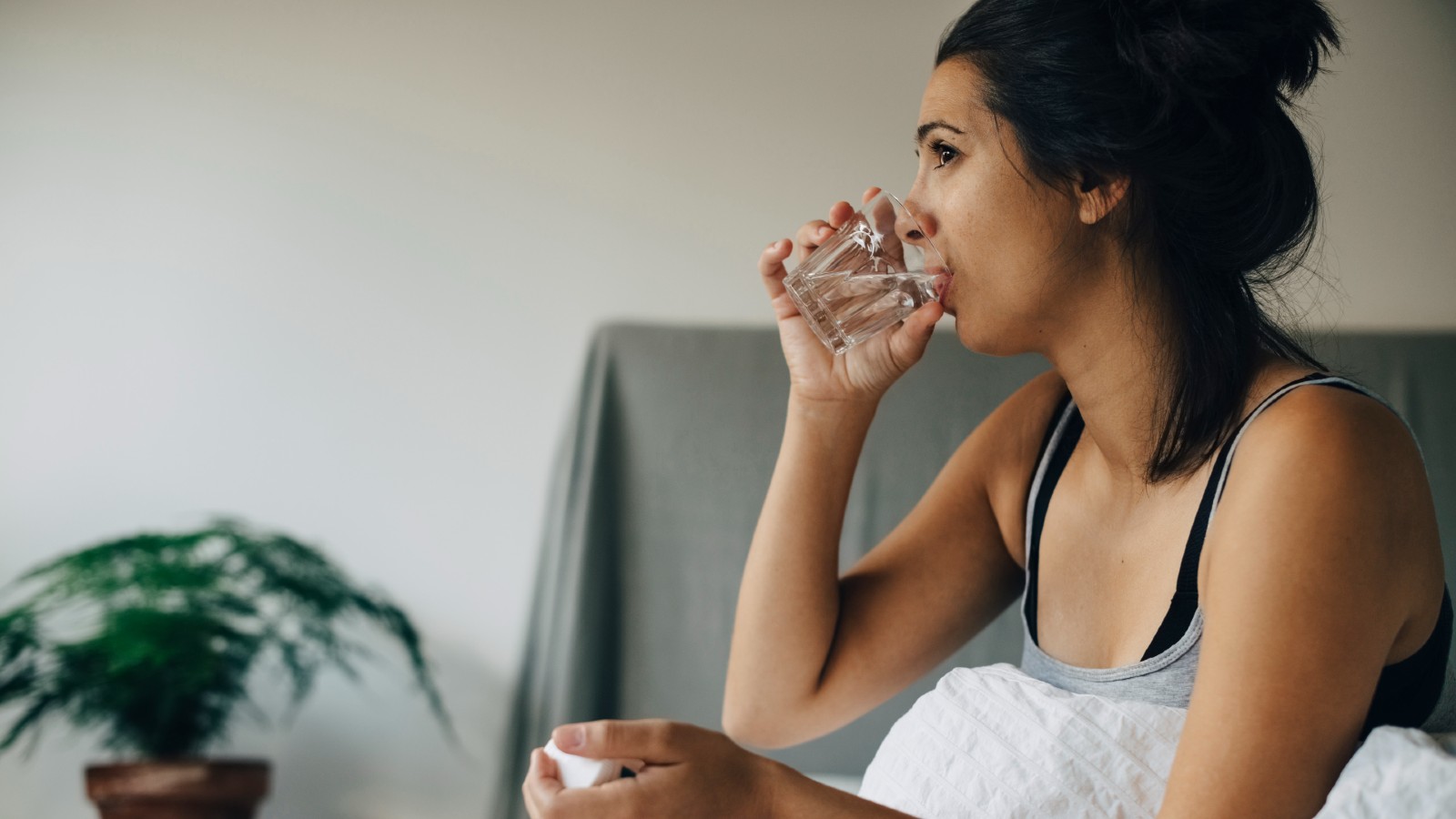This is what alcohol really does to your sleep cycle
Alcohol not only leaves you hungover—but disrupts your REM according to experts


Nothing beats a cheeky round of cocktails with friends or a nice big glass of wine at the end of a long day—but with alcohol, comes a lot of downsides. From breakouts to beer fear and worst of all bad sleep, these are sadly part of the parcel.
Though we’ve been able to debunk some hangover myths, there is one irrefutable side effect to alcohol—the negative impact on our sleep.
A good night's sleep is crucial for your physical and mental wellbeing. We know how many hours of sleep we need, and even all the best sleep positions, but sometimes when you’ve had one glass too many you’re in for a very long night. Experts at Delamere health explain exactly what alcohol does to our sleep cycle.

It’s a common misconception that alcohol can actually help you sleep because it makes you feel relaxed and tired. However in excess, it can actually do the complete opposite, and even land you with headaches, exhaustion, and dehydration.
“When alcohol is consumed, the substance is absorbed into the bloodstream from the stomach. Enzymes in the liver metabolize the alcohol throughout the night. During this process, the alcohol will still be circulating through the body, causing sleep disruptions and poor sleep quality,” Delamere experts explain.
“Binge drinking, which involves consuming more than six units of alcohol in a single session, can send our bodies into a deep sleep, disrupting the first two cycles of REM sleep.”
Put simply, drinking too much alcohol can cause you to fall into a deep sleep, causing you to miss out on the other cycles of REM—causing an imbalance. It disrupts the restorative stages our bodies need and can cause you to wake frequently or wake up too early. (We all know those nights when you get home and into bed at 2 am only to wake up again at 7 am for no reason.)

Not only does alcohol leave you unrested, but it also increases the chance of vivid dreams, parasomnia, sleepwalking, and even breathing problems—Not drinking alcohol at all, has never sounded so tempting.
But as doom and gloom as this all sounds, there are a few things you can do to lessen the effects...
Delamere suggests avoiding drinking too close to bed, they say: “You need to give your body time to process the alcohol you have consumed before you attempt to sleep. It takes on average 2 hours per unit to process alcohol, but this can vary from person to person.”
They also suggest alternating between alcohol and water, eating before you drink, avoid drinking excessively, or drinking games that make you drink a lot, and most importantly don’t mix your alcoholic drinks!

Naomi is a Lifestyle News Writer with the Women's Lifestyle team, where she covers everything from entertainment to fashion and beauty, as well as TikTok trends for Woman&Home, after previously writing for My Imperfect Life and GoodTo. Interestingly though, Naomi actually has a background in design, having studied illustration at Plymouth University but lept into the media world in 2020, after always having a passion for writing and earned her Gold Standard diploma in Journalism with the NCTJ.
Before working for Future Publishing’s Lifestyle News team, she worked in the Ad production team. Here she wrote and designed adverts on all sorts of things, which then went into print magazines across all genres. Now, when she isn’t writing articles on celebs, fashion trends, or the newest shows on Netflix, you can find her drinking copious cups of coffee, drawing and probably online shopping.